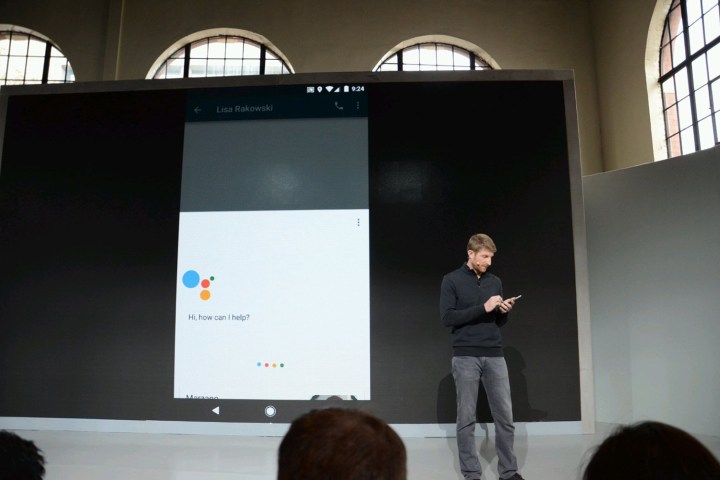
As Android Police noted, both a Nexus 6P (running Android 7.1.1) and a Samsung Galaxy Note5 (running
Be warned, however, that given that this is still an alpha version of the newest software, it’s working better for some than it is for others. It doesn’t seem to be linked to device type (some Nexus 6Ps got Assistant to work, while others didn’t), though it could be contingent on phone settings or other app versions. Regardless, the very presence of Google Assistant on v6.13 could mean exciting things for folks who have been waiting to get
While we’re not rushing to any conclusions, it could be the case that Assistant will be made available to everyone when v6.13 becomes officially available. However, it’s also possible that some devices got Assistant as an error when mistakenly identified as a Pixel handset in settings (that said, the introductory messages that new users received suggest that this was not an error).
Regardless, we’ll have to wait a bit longer to see exactly when Google Assistant becomes more widely available, but perhaps not as long as previously thought.
Editors' Recommendations
- 5 smartwatches you should buy instead of the Google Pixel Watch 2
- The first Google Pixel 9 Pro hands-on photos are here
- Something strange might happen to the Google Pixel Fold 2
- Google Pixel 8a: news, rumored price, release date, and more
- Here’s every color that will be available for the Google Pixel 8a